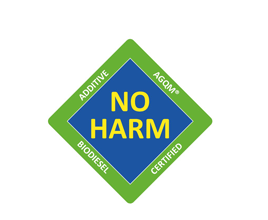EU Biofuel Regulation
By 2020, the EU aims to have 10% of the transport fuel of every EU country come from renewable sources such as biofuels. This is to help to reduce greenhouse gas emissions. For biofuels to reduce greenhouse gas emissions without adversely affecting the environment or social sustainability, they must be produced in a sustainable way and must comply to strict specification.
For unblended FAME (fatty acid methyl esters) diesel fuel as well as for certain higher level Biodiesel blends, the European diesel fuel specification must meet EN 14214 and must exhibit a minimum oxidation stability.
To meet EU regulation for Biodiesel and diesel fuel blends by 2020, Rodanco has developed AntiOxidant AO1285, which fully complies with EN 14214 and passed the No-Harm test of oxidation stabilizers executed by AGQM, Germany’s Biodiesel quality management association. Therefore, more and more stabilizers are utilized for Biodiesel as blend component in order to ensure sufficient oxidation stability of the final fuel.
No-Harm Test
Recently AGQM has completed its 14th round of no-harm tests on oxidation stabilizers for Biodiesel used in diesel fuel or heating oil. The No Harm test of oxidation stabilizers contains a test procedure to determine the relative efficiency against Butylhydroxytoluene (BHT) using different scenarios.
Rodanco’s Biodiesel additive AntiOxidant AO1285 successfully passed the no-harm test for Biodiesel as a blend component in diesel fuel. Rodanco’s listed Biodiesel additive AntiOxidant AO1285 as well as a description of the test procedures, can be found on AGQM’s website.
AGQM
Founded in 1999, AGQM has the objective to provide quality management for leading Biodiesel producers, traders and formulators. AGQM’s test procedures ensure a safe addition of antioxidant to Biodiesel or heating oil without negative interactions between the fuel and additives. A B10 blend is used when testing antioxidants for mixture in diesel fuel, and B20 is used for testing antioxidants for biodiesel blends in heating oil.
Revision
With the revision of EN 14214 (EN 14214:2010) in 2012, the requirements for the oxidation stability increased from 6 h as stipulated by the previous standard to 8 h according to the new standard EN 14214:2012. This alteration led to corresponding consequences regarding the required achievable oxidation stability for the No-harm Test. Since 2013 the requirement of the No-harm Test is that a minimum oxidation stability of 8 h +1 h must be achieved by additivation. The achievement of an extra hour is meant to provide the customer with a safe time reserve for any possible stability loss due to contact with oxygen during transport or prolonged storage times, for example. Rodanco’s AntiOxidant AO1285 fully complies with the new standard EN 14214:2012 oxidation stability of 8 h +1 h.
